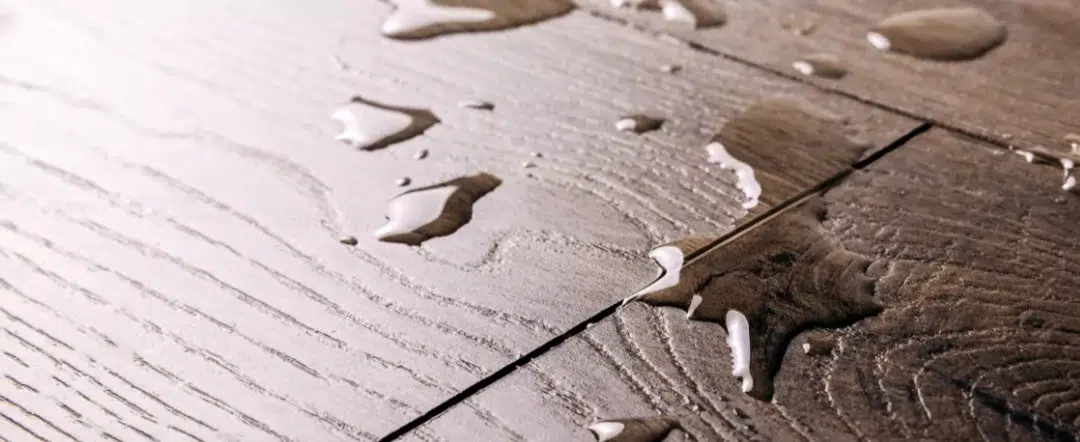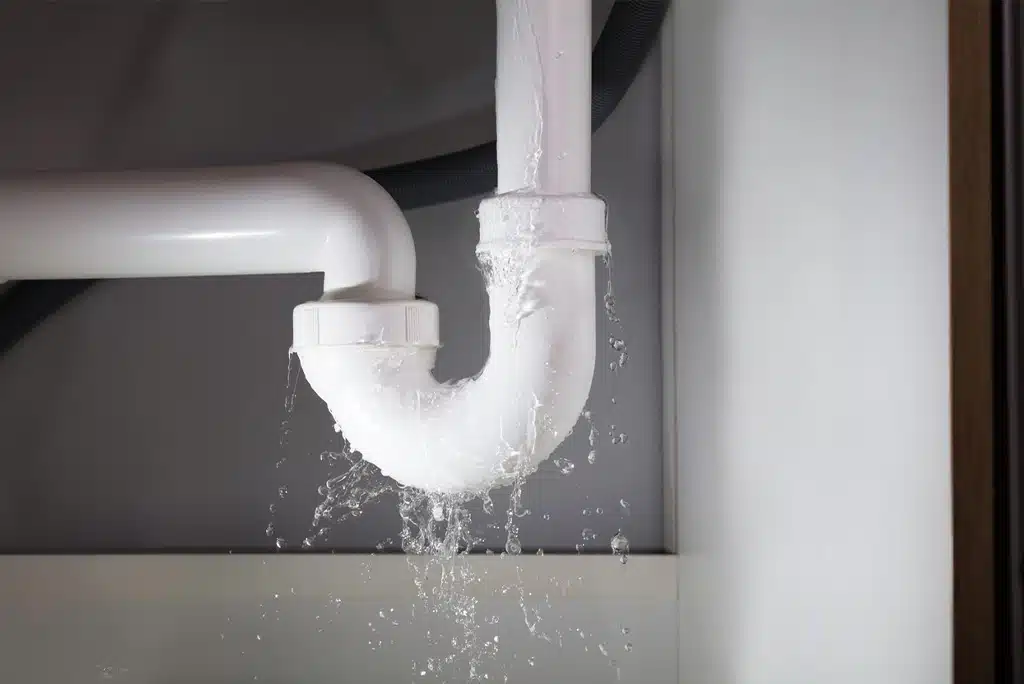Why Is My AC Drip Pan Full of Water?

Condensation production is a normal part of the cooling process for your air conditioning system. When functioning properly, your AC unit will capture any condensate produced in its drip pan, where it then drains out via a drain pipe connection.
In some cases, however, your air conditioner’s drip pan may be unable to drain properly. When this happens, the water continues to rise and can quickly cause a leak from your unit.
Here’s everything you need to know about why your system’s drip pan may be full of water — and what you can do to stop it before a leak occurs.
Risks Associated With Dripping Water From AC Units
Water leaking from your air conditioner’s drip pan isn’t just a nuisance. It can cause serious problems for you and your family members, including:
- Slip & falls: Water pooling on the floor can increase your risk of a slip-and-fall accident in your home.
- Wood rot: If your home has wooden floorboards or hardwood flooring, the water damage from a leaking drip pan can lead to wood rot.
- Mold & mildew: Leaking water on walls can lead to mold and mildew growth, which can cause serious allergic reactions and respiratory illness.
- Electrical damage: If water enters any of your electrical outlets, switches, devices, or appliances, you could have an expensive replacement on your hands.
Routinely checking your drip pan for increased water levels can save you time, money, and energy.
But homeowners should be able to do more than identify whether water is pooling in their drip pans: They should also be able to troubleshoot the issue to avoid needing repairs.
Common Causes of Full AC Drip Pans
1. Drain Pipe Clog
Before we cover the troubleshooting steps, it’s necessary to understand the most common causes of a full air conditioner drip pan. The first source of a drip pan drainage issue is a clogged drain pipe.
Dust, dirt, corroded drip tray pieces, and more can accumulate in the drain line rather than being flushed outside the system. This debris accumulates over time, leading to severe blockages that can render your drain pipe virtually useless.
2. Iced-Over Coils
From dirty air filters to low refrigerant levels, the coils in your air conditioner can freeze for many reasons. When this happens, the melting ice from the coils can drip faster than the flushing capacity of the drainpipe, causing it to overflow.
3. Improper Unit Installation
Even the most discerning homeowner can be duped by an unqualified HVAC technician that reels them in with incredibly low AC installation prices. However, as the adage goes, you’ll get what you pay for if you cut corners by improperly installing your air conditioner.
Incorrect unit installation can result in your drip pan being unable to properly flush out the condensate your system produces, leading to unexpected leaks and damage.
Now that you understand the different causes for an overflowing AC drip pan, it’s time to take action. Thankfully, homeowners can take a few easy steps to troubleshoot the issue before calling a knowledgeable technician for emergency repairs.
Steps To Take When AC Drip Pan Is Full
1. Power Down
When your AC drip pan is full, the first step is to turn off your HVAC system. Leaving your system on while handling water issues can lead to electrical-related personal injuries, so be sure to complete this critical step before troubleshooting your system further.
2. Check Pipe
Since drain pipe blockages are the leading cause of full drip pans, it’s recommended that you start by inspecting this area of your unit. If the fitting is loose, tighten it, and remove any blockages using a wet and dry vacuum cleaner.
3. Air Filter
Clogged or dirty air filters can cause your coils to freeze, inevitably leading to a leaking drip pan. Check if your air filters are dirty and replace them as needed. Replace your air filters at regular 90-day intervals (more often if you have pets or are particularly susceptible to allergies).
4. Power On
After you’ve inspected all the key areas of your system, it’s time to power your unit back on and allow it to run for some time. If your drip pan has begun draining properly, you should be all set. If not, contact your trusted cooling specialist to schedule same-day repair services.
Preventative AC Maintenance Is the Key
The best way to protect your air conditioner’s drip pan from overflowing is by scheduling annual AC maintenance with a knowledgeable technician. Preventative system maintenance helps you identify problems that can lead to an overflowing drip pan early and avoid system leaks altogether.
Has it been longer than one year since your last air conditioning maintenance appointment?
Let us help you avoid drip pan problems this season by calling 919-480-2727 today or booking AC maintenance in Raleigh, NC.
If you found this post helpful, check out our other blog posts, subscribe to our YouTube channel, and follow us on social media for more HVAC and plumbing tips, information, and fun!
Air Experts is always here for your Heating, Cooling, Indoor Air Quality, Plumbing, and Water Treatment needs. Our award-winning customer service team is available 24/7, or you can easily book an appointment online.







